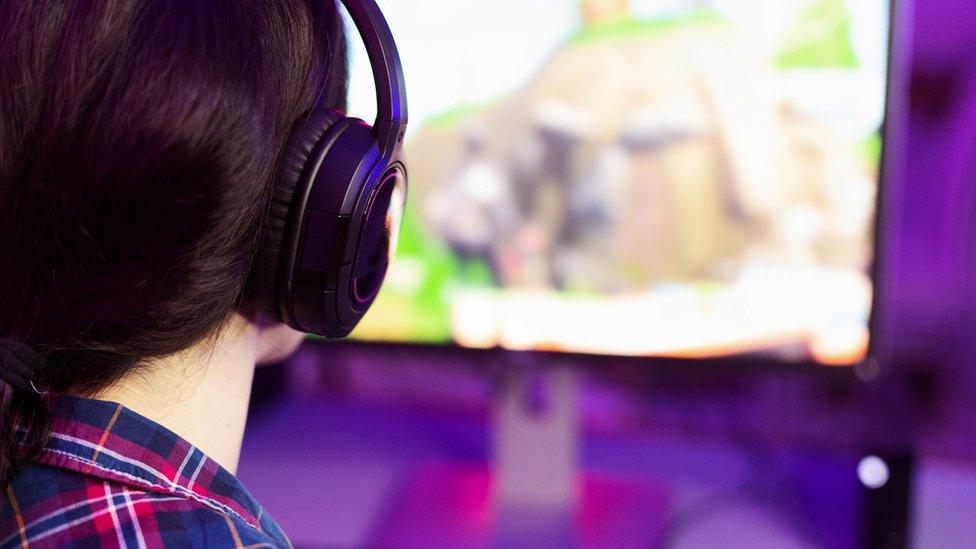More help for young people addicted to gaming
- Published
- comments

New plans have been announced to give young people who are seriously addicted to computer games better access to NHS treatment.
There are now dedicated professionals who can help people aged between 13 and 25 who have gaming disorder.
The World Health Organisation describes "gaming disorder" as a pattern of behaviour where gaming takes priority over all other activities.
Some of the symptoms include a lack of control over gaming and giving it more time and importance than other things such as social life, school work or relationships with family and friends.
The new service, including support via Skype, is part of the Centre for Internet and Gaming Disorders.
There are also calls for tech companies to do more to help tackle the problem too.
Claire Murdoch, NHS England's National Mental Health Director said: "Compulsive gaming and social media and internet addiction is a problem that is not going to go away when they play such a key part in modern life.
"The NHS is rising to the challenge - as it always does - with these new, innovative services, but we can't be expected to pick up the pieces, which is why tech giants need to recognise the impact that products which encourage repeated and persistent use have on young people and start taking their responsibilities seriously too."
How does the UK compare to other countries?
Lots of countries around the world are trying to deal with the issue of gaming and internet addiction.
In South Korea, there is a law banning under 16s from playing online games between midnight and 6am.
WATCH: 'I spent 18 hours a day watching YouTube'
In Japan, players get an alert if they spend over a certain amount of time each month playing games.
While for gamers in China, there's a limit on the number of hours that kids can play some games.
- Published20 June 2019
- Published6 March 2019
- Published8 November 2018
- Published21 March 2016
- Published28 May 2019
